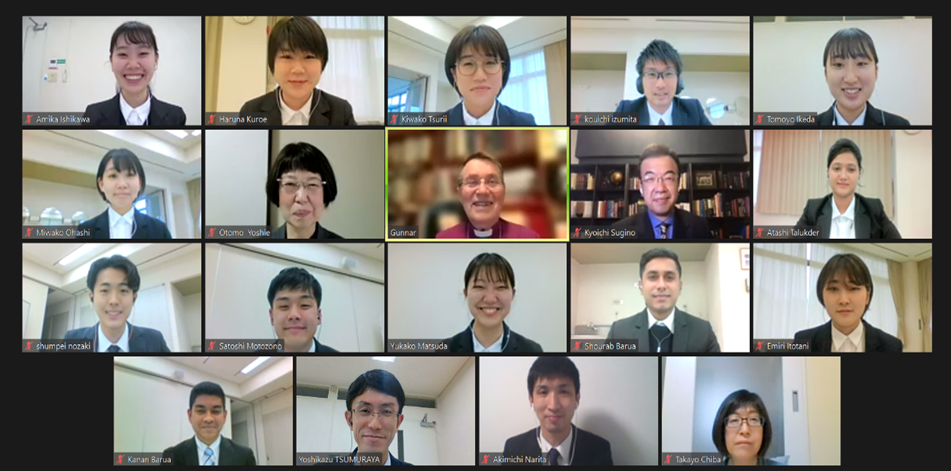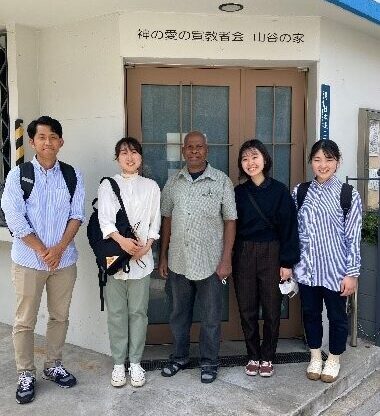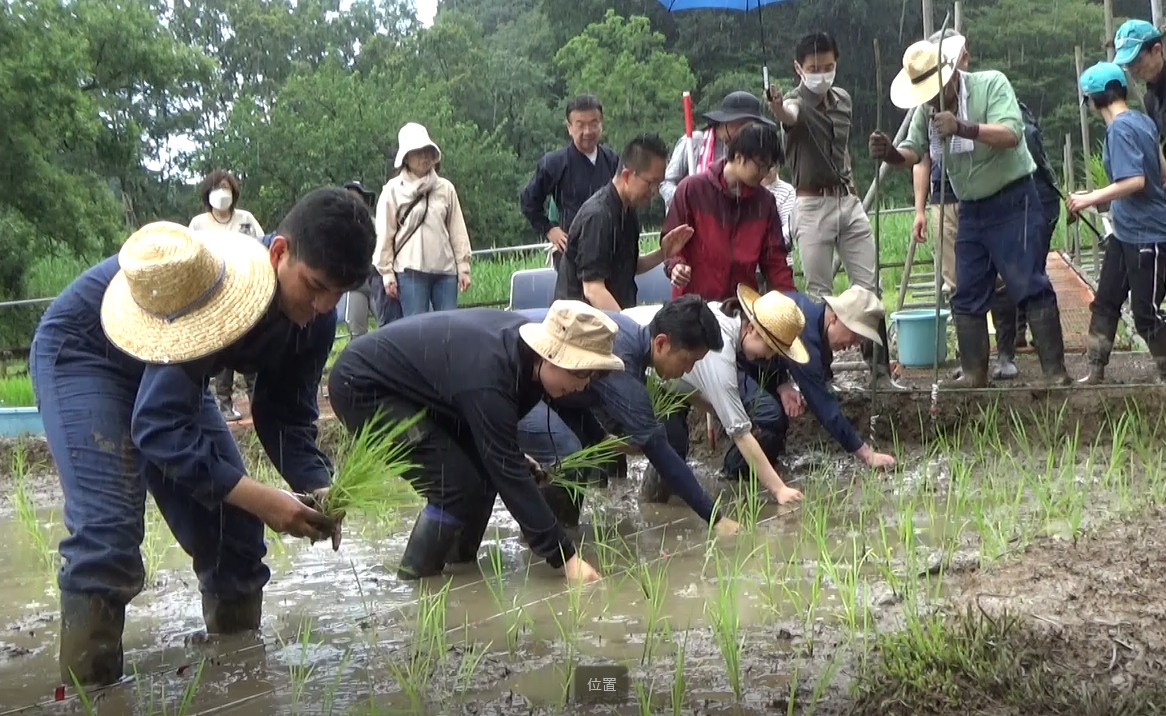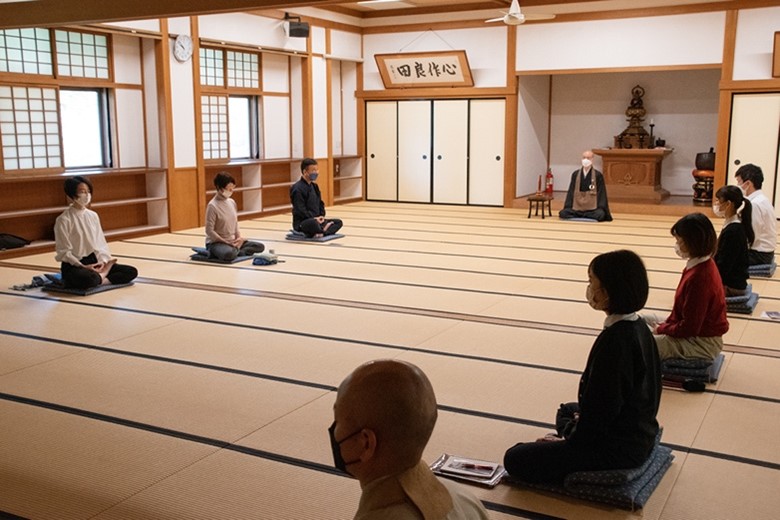With “Engaged Buddhism” and “Interfaith Action” as its pillars, the Gakurin makes full use of its global network to have lectures from leaders of world’s religions to learn and deepen understanding of the core teachings and faith practices of each religious tradition.
In May 2022, Gakurin seminarians had the opportunity to meet Bishop Gunnar Stålsett, Bishop Emeritus of Oslo of the Church of Norway, former Vice Chairman of the Nobel Peace Prize Committee, and Honorary President of Religions for Peace (WCRP) International. Bishop Stålsett recounted his own peace work in conflict zones in Asia and Europe, mediating and reconciling parties to the conflict. In his comments on peace and justice, forgiveness and reconciliation in Christianity, as well as on the “Western and Eastern Notions of Tolerance,” one of the themes of the specialized research of Gakurin seminarians, he stressed the importance of living a spirit of “tolerance” in today’s society faced with various challenges, which is to “love others as you love yourself.
Last October, Bishop Munib A. Younan, Niwano Peace Prize laureate and Honorary President of WCRP International, who is promoting dialogue and cooperation among various religions at the holy sites of Christianity, Islam, and Judaism in Jerusalem, visited Gakurin Gyogakuen Campus. As head of the Jerusalem Association of the Religious Institutions of the Holy Land, an interfaith council, Bishop Younan has been patiently keeping the light of interfaith dialogue burning amidst the ongoing Israeli-Palestinian conflict and promoting peace education for young people. In his dialogue with Gakurin seminarians, he spoke of the need for dialogue and cooperation through concrete actions, mentioning his dialogue with Muslims and Jews.
Furthermore, in February 2023, Gakurin Public Lecture “World Religions: An Introduction to Christianity” was given by Rev. Dr. Renta Nishihara, President of Rikkyo University and Bishop of the Chubu Diocese of the Anglican Church of Japan. Dr. Nishihara lectured on the history of Christianity, Christian doctrines including the Trinity, and the “relationship between Christianity and liberal arts. He also spoke of the need to carry on the tradition of doctrine and faith practice and reinterpret it in a way that is appropriate for the modern age.
Through these dialogues, Gakurin seminarians renewed their determination to refine their kan-sei, chi-sei, and hin-sei, and to put the teachings into practice in their daily lives. At the same time, they were able to deepen their awareness of the need to collaborate on various issues in Japan and abroad, transcending the religious boundaries of Buddhism and Christianity, as Founder Niwano and world religious leaders have shared in their encounters since the founding of the WCRP (RfP).






